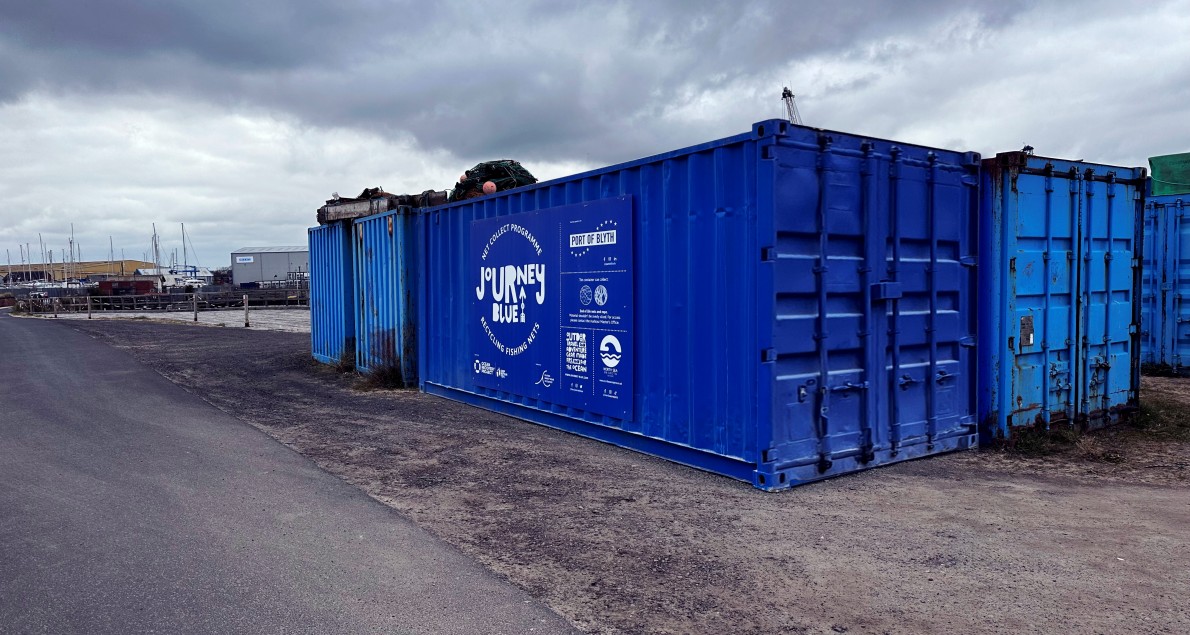Port of Blyth Forms Partnership to Eliminate Fishing Net Pollution

Port of Blyth has partnered with Journey Blue and North Sea Rejects to eliminate fishing net pollution around the Blyth Estuary.
Journey Blue's Net Collect Programme provides fishermen access to a free fishnet waste disposal facility to keep fishing nets from being discarded at sea or in landfill.
The Port has taken delivery of a striking blue container located at the Port's South Harbour Terminal nearby the commercial fishing facility. End of Life fishing gear will be deposited into the container and then sorted by Journey Blue and North Sea Rejects prior to being recycled into green plastics.
Marine conservation is fundamental to the Port of Blyth's goal to create a safe environment for all and welcome partnerships which protect and develop the environment around the estuary. The Port works closely with Keep Britain Tidy and has recently installed several fishing line recycling bins around the Harbour.
Edwin Dick, Harbour Master at the Port of Blyth said: "It's fantastic to be facilitating a project that will undoubtedly have a huge impact on the River Blyth. Abandoned fishing gear is deadly to marine life and makes up a huge amount of plastic pollution within the sea. By working closely with our commercial and leisure fishing network we can make a huge difference."
Alistair Lawson, Founder of Journey Blue said: "We are delighted to have been approached by North Sea rejects to work with them on this important conservation effort. It’s the perfect scenario for us at Journey Blue, working as a team to be able to provide the coastal communities around the UK with a means to ensure there is no need to dump or send end-of-life fishing gear waste to landfill. It’s a great opportunity for us to gain greater awareness of our work as well as introducing the programme across new parts of the UK. The material collected will be cleaned, shredded, pelletised and put back into the manufacturing process of products using recycled ocean plastic”.

